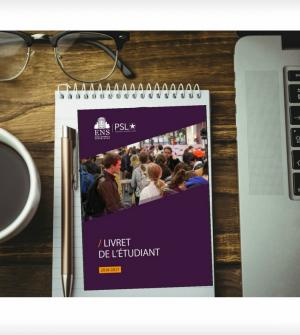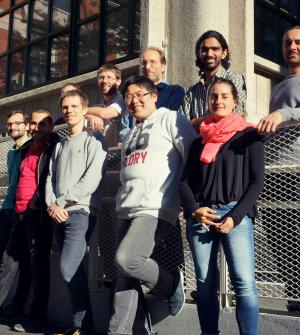Academic Programs

Intellectual freedom and individual tutoring
The ENS enhances students’ autonomy with individual tutoring: all students draw up their individual study programme while being advised and guided by a tutor (agrégé répétiteur, teacher-researcher or researcher), so that they can make their choice among a large training offer.
Interdisciplinarity
The ENS gives priority to fundamental knowledge and combines in-depth study in a discipline with familiarity in many other disciplines. The richness, diversity and organisation of the training fields, gathered in 15 departments for training and research in Sciences and Humanities, allow students to explore the boundaries of their disciplines and to develop intellectual approaches with a strong interdisciplinarity.
Training through research
Through the scientific activity of the ENS and its research teams, training provided in this institution truly consists in training through research, regardless of the career paths students will choose afterwards. Teaching, introductory courses or research seminars are handled by several teacher-researchers who present and include students in their achievements.
Openness on the world
ENS students are destined to become international students, able to work worldwide. They are very soon initiated to the diversity of academic systems and foreign languages, and stay for 1 or 2 semesters in partner universities or undertake research internships in foreign laboratories.
The diploma of the Ecole normale supérieure
Training for the normaliens hinds around the diploma of the Ecole normale supérieure, is based on paths in several fields, leads to a research master’s degree and is completed by:
- linguistic and international openings (more than 20 foreign languages taught at the ENS, compulsory stays abroad);
- experiences outside the walls (in associations, public services, NGO, companies, etc.);
- a solid multidisciplinary education.

La formation doctorale constitue un point majeur de la formation à et par la recherche. Le travail des doctorants est essentiel dans la production scientifique des laboratoires et équipes de recherche.
L'agenda des présentations.

Le séjour à l’étranger est une étape essentielle dans le parcours des normaliens, c'est pourquoi l'établissement a négocié des accords bilatéraux et identifié des partenaires privilégiés dans le cadre des échanges Erasmus +.

